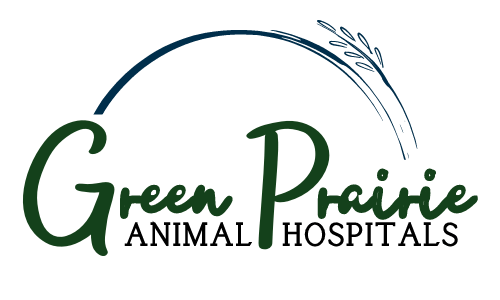During your pet’s wellness exam our veterinarians will discuss your pet’s nutritional needs with you and answer any questions you may have about feeding your pet. As your pet ages, your pet’s nutritional needs change too.
Whether your pet has special dietary needs or simply needs to shed (or gain) a few pounds, we can help you keep your pet healthier with good nutrition. We offer counseling in dietary selection and feeding practices for pets during various life stages, such as growth, pregnancy, nursing, and their senior years. If your pet has a medical condition, we have prescription foods that can support your pet’s particular condition.
It can be easy for a pet owner to become overwhelmed by the available selection of pet foods, all of which claim to have specific benefits for pets. We can offer expert advice to help you negotiate the complicated array of choices. Let our nutritional counseling service help you achieve and maintain optimal nutrition for your pet.
Pet Nutrition Myths Busted
Dr. George Eales
Green Prairie Animal Hospitals
Tell us more about protein in dogs
Dogs can take a variety of protein sources, unlike cats. Cats are considered obligate carnivores, meaning they have to have meat in their diet to get taurine because they can't synthesize it from other products.
Why are byproducts not as bad as we think?
Byproducts are raw ingredients that have been processed in some way. Some of these byproducts are easier for animals, such as dogs and cats, to digest and utilize the nutrients that come out of them. For example, for humans, it would be ice cream or cheese.
Why do pets need antioxidants?
The manufacturing process of dog food or cat food typically involves pressing the food at high pressure, bringing fats and proteins to the surface. Antioxidants can keep the food from becoming rancid in the bag or during transport. They also protect some proteins from becoming less available or less useful due to exposure to air or oxygen.
Tell us more about grains, specifically corn, for pets
Corn is not bad for dogs because it has linoleic acid, which is an easy form of linoleic acid for dogs to get. This is an essential amino acid that dogs need for metabolism and other bodily functions. Corn is not fed to dogs whole, as it is not very digestible. It gets ground up, and thus, the protein and fiber content in corn becomes available and usable for dogs.
If you still have other questions and you'd like to reach out to us, you can call us directly at (309) 247-3231, or you can email us at [email protected]. But please do reach out, and we'll get back to you as fast as we can. Don't forget to follow us on social media https://www.facebook.com/greenhavenanimalclinic/, instagram.com/greenhavenanclinic
